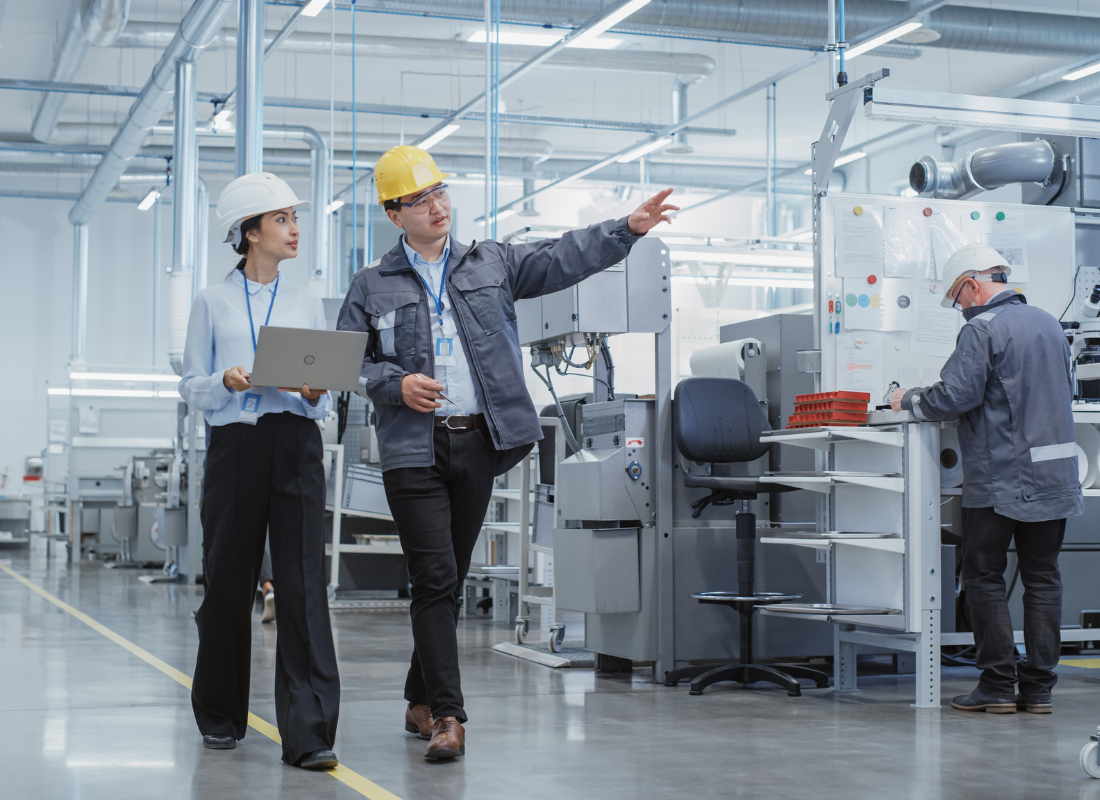Want more like this?
Sign up today to get free articles, webinars, whitepapers, yearly guides and more delivered to your inbox.
Leverage Your ERP to Increase Your Business’s Value
Originally published on November 8, 2021
Updated on February 7th, 2024
In several recent articles and videos, we’ve discussed how manufacturing companies can add value to their business. One such way to build value is by investing in enterprise resource planning software, or ERP.
In a recent episode of Moore on Manufacturing, James Moore partner (and Manufacturing Services Team leader) Mike Sibley welcomed Sunny Han to discuss ERPs. Sunny is the CEO and founder of Fulcrum, a company that makes such software products. Together they discussed how ERPs work and the benefits they bring to manufacturing companies.
What is an ERP?
If you’ve watched Star Trek, you’ve seen how the computer on the U.S.S. Enterprise stores all of the ship’s information. Crew members communicate with the computer to retrieve data on everything from engine room conditions to objects approaching from outside. This information helped the captain and crew make crucial decisions during their mission.
According to Sunny, this is the best way to describe an ERP—a “large brain” into which you can deposit a broad range of information and create reports that inform your decision-making efforts. And that’s good news for manufacturing companies.
“ pulls information in automatically from a lot of different places. It automatically tabulates things. It gives your operators and machinists some insights on the work they’re doing,” said Sunny. “It replaces the paper on your shop floor so the drawings can be digital. You can pinch and zoom on them. You can have your operators input information from them. All of it feeds back into insights about who owes you money, when you should buy things, and when you should plan to ship them.”
How can an ERP help your business now?
Using an ERP better enables you to utilize your company’s data to improve processes and better forecast your needs. In many cases, businesses have the data they need; it’s simply stored in different places. For example, you might use QuickBooks for your financial data but a separate system to track inventory.
An ERP uses application programming interfaces (APIs) to help those systems connect and share information. Sunny uses electrical outlets as a comparison. “As long as we have a standard for what that outlet looks like, and I produce plugs that look like it, it’ll fit any outlet you have in the wall at your particular building,” he said.
Putting this information together allows you to make quicker decisions about production, invoicing and other operations. Mike recounted a client conversation centered around an increase in scrap materials at their facility. The uptick was noticed because the client’s trash bill was going up, and the trash bill is based on weight.
“So we actually saw a trend and said, ‘Well, here’s the problem—your scrap seems to be going up.’ But it took several months,” he said. “If you have the right systems in place, you can see that probably the same day or within a few days of saying, ‘Hey, something’s going on here.’”
An ERP also helps your company meet the increasing speed of innovation. With consumer needs and wishes evolving more rapidly than ever, products need to keep pace. This means manufacturers must keep a close eye on trends and be nimble on how they work with customers to win deals.
“It starts to feel like you’re taking the friction out of the relationship, right?” said Sunny. “Anytime you can do that, you’re going to have much faster and much better relationships with your customers and with your vendors and whoever else. And the way to do that is to remove the friction between the people and the components that are within the business you run as well.”
How can an ERP help your business in the future?
It all comes back to building value. The competitive edge (and resulting happy customers) gained from having actionable, readily available data means better business decisions. This in turn generally brings higher revenues and profits, which pays off when it comes time to sell your company.
“This kind of tool at your disposal, when working the way they should work, will give you a huge competitive edge,” said Mike. “And that increases the value of your business now and down the road.”
While technology has always been at the forefront of manufacturing innovation, companies today must continue pushing the envelope of its use. An ERP goes beyond mere publicity and promotion. It transforms your data it into useful, relevant information to drive customer engagement and satisfaction.
“There’s only so much you can do with search engine optimization and Google Ad Words,” said Sunny. “At some point, the reputation of companies that are easier to work with is going to win far more than anything else. This is a differentiator.”
All content provided in this article is for informational purposes only. Matters discussed in this article are subject to change. For up-to-date information on this subject please contact a James Moore professional. James Moore will not be held responsible for any claim, loss, damage or inconvenience caused as a result of any information within these pages or any information accessed through this site.
Other Posts You Might Like

